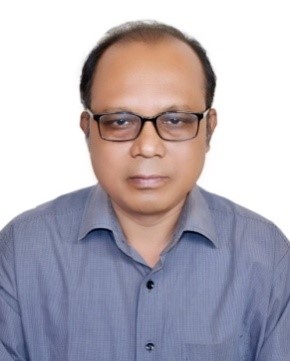Country to get rid of poverty by 2030

In line with its commitment to attain Sustainable Development Goals (SDGs), the government has undertaken a project to make the country free of extreme poverty by 2030. To this end, the government has formulated the ‘National Coordinated Saving and Micro Credit Programme Implementation Policy 2019.’
The ruling Awami League led by Prime Minister Sheikh Hasina has been working relentlessly to build a hunger and poverty-free Bangladesh by executing all development plans and projects.
The fresh project has been undertaken as part of the incumbent government’s continuing endeavour to eradicate poverty from the grassroots level. Under the project, the government will introduce a coordinated saving collection and micro credit programme at every village and town in phases. Besides, it is also determined to make every village and town beggar-free.
In this regard a 13-member committee on national coordinated saving and micro credit affair led by public administration ministry secretary has been formed earlier. The committee has already prepared the draft of the policy. “As part of implementation of the project, the programme is expected to begin at eight upazilas of eight divisions as pilot, initially from December this year,” a high up public administration ministry told Bangladesh Post on Sunday.
According to the public administration ministry sources, people living in the remote and backward villages, haor and char areas will be given priority.
A member above 18 years of age of each family living below the poverty line will be provided training and given loan worth Tk two lakh for becoming self-reliant.
The loan will have to be repaid within a year in 12 installments. The families living below the poverty line will get loan until their solvency ratios improve.
As credit alone is not enough to boost productivity, sustain rising incomes and reduce poverty, the poor will be given training and linked with better marketing networks to expand their business.
In order to introduce the national coordinated saving and micro credit programme, separate committees will also be formed at district, upazila and union, sources said. Ministers, lawmakers, upazila chairmen and mayors of municipalities and city corporations will act as advisors while the government officials like deputy commissioners and upazila nirbahi officers (UNOs) will be the heads of the committees respectively.
Meanwhile, Bangladesh has already made remarkable strides in different socio-economic indicators including development of living standard, poverty reduction, expansion of education and healthcare services, reduction of child and maternal mortality rates and women empowerment in the past ten years.
Not only among Asian countries, has Bangladesh surpassed many developed countries in areas. For this, world leaders have recognized Bangladesh as a role model of development.
According to a HBSC projection, Bangladesh will be the world’s 26th largest economy by 2030. Besides, as about sixty five per cent population residing in the country’s rural areas and facing the dearth of urban facilities, the present government has adopted a multidimensional plan to equip villages with urban amenities.
Empowering the rural people to get a taste of urban life and their expectations to get used to modernity the government has deftly dwelt on turning villages into towns as envisaged in the electoral manifesto of Awami League. Focusing on a multidimensional plan to turn villages into towns to enable rural people get urban facilities and create income-generating opportunities for youths has underpinned the notion of tasking planners, architects and engineers with developing a growth strategy for new towns.
With a view to empowering the extreme poor women, the government has been implementing different social safety net programmes in all the city corporations, district, upazila and municipality areas. Besides, the government has taken up an effective measure to bring the marginal people into the mainstream of economic activities to ensure balanced development.
This project is expected to change the fate of the marginal people through ‘Amar Bari Amar Khamar’ project, the main driving force to alleviate poverty. As the biggest responsibility for this government is to create employment opportunities for the educated youths, it has also taken special schemes for creating more employment opportunities for the young generation.
These include ensuring different facilities for young entrepreneurs including providing easy financial support, providing special facilities and incentives for young women entrepreneurs, employment plan through the government initiative, taking initiative to get international patent of the young innovators, creating skilled manpower for job at home and abroad and establishing technical colleges in each upazila for creating technically educated skilled manpower.
Apart from these, the government is also implementing the seventh five-year plan having similar goals as the SDGs. It has also started to formulate the eighth five-year plan.
Marking the one hundredth birth anniversary of the Father of the Nation in 2020, the country will celebrate the ‘Mujib Year’ in 2020-2021 and the Golden Jubilee of Independence in 2021. In the two august occasions of the Bengali nation, the ruling Awami League wants to take the country to a unique height in the socio-economic sector. And as a strategy of this, the government are implementing Vision-2021 and Vision-2041. Besides, it has formulated 100-year ‘Bangladesh Delta Plan-2100’ for achieving desired development overcoming the adverse impacts of climate change.
Read more: www.bangladeshpost.net



